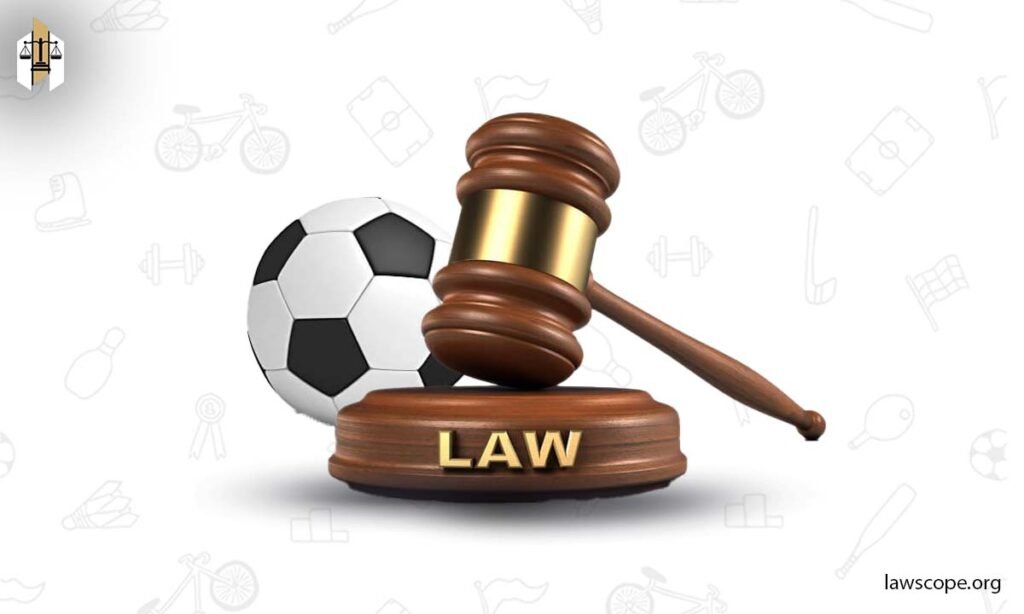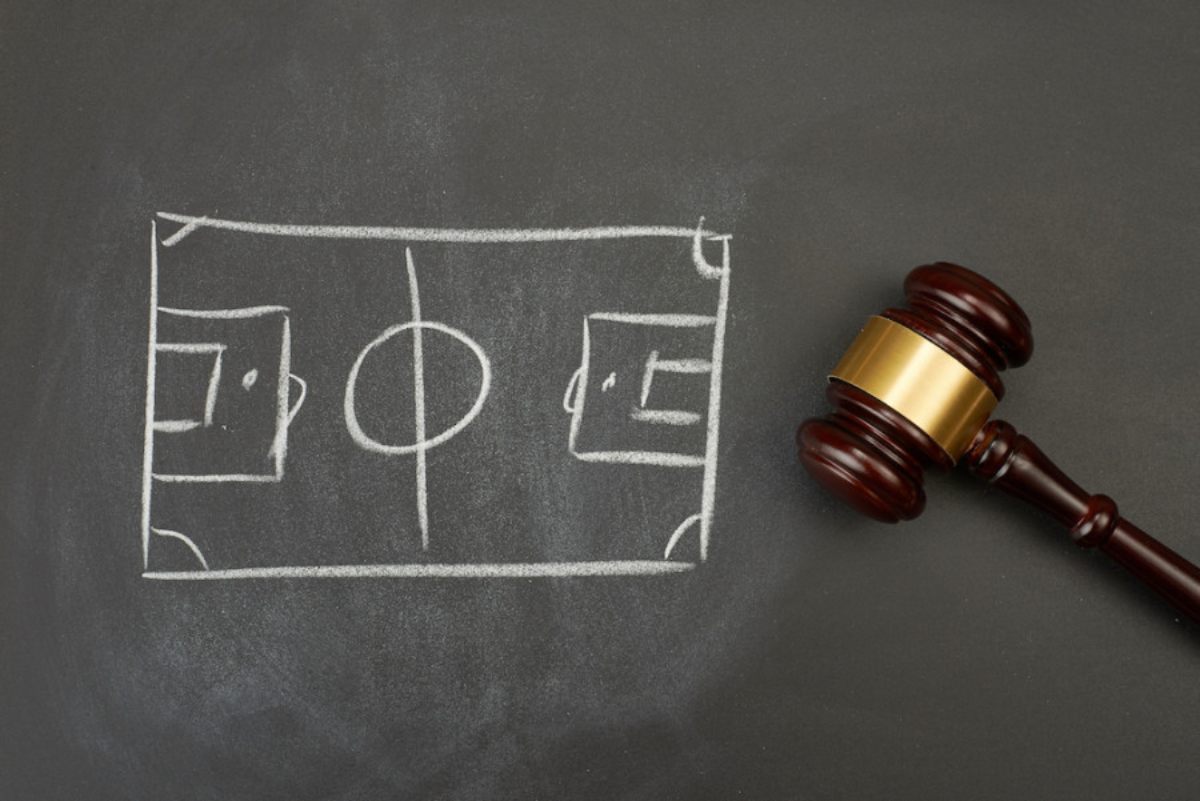
In recent years, the field of sports law has emerged as a specialized area of law, focusing on the unique legal challenges faced by athletes, sports organizations, and governing bodies.
Whether you are a sports enthusiast, a legal professional, or simply curious about the legal side of the sports industry, this article will uncover the intricacies of sports laws and shed light on their significance in the ever-evolving world of sports.
What Is Sports Law?

Sports law covers a wide range of areas, from employment contracts (like athletes’ contracts) to commercial contracts (like media rights or sponsorship deals) to litigation (like getting involved in disciplinary and regulatory cases).
Lawyers usually focus on one of these. Clients range from sports governing bodies to broadcasters like Sky and BT.
Athletes, sports clubs, and corporations looking to get sponsorship deals can also be clients.
Are There Any Sports Laws In Place?
In the UK (and many other countries), sports are regulated and overseen by the national governing body of the sport.
Football in England, for example, is overseen by the FA.
However, there are situations in which governing bodies are not in a position to act.
When this is the case, sports law and the law need to be joined.
In reality, sports laws do not exist as a distinct area of law; rather, it is a combination of a number of legal disciplines applied to a variety of sports contexts and circumstances.
As a result, sports lawyers must have a good understanding of a wide range of legal practices and sports.
What Is The Importance Of Sports Law?
Long before social media came along, athletes in every sport imaginable still needed high-quality representation from athletic lawyers.
But now that social media has arrived, it’s safe to say that the need for an entertainment law firm has almost quadrupled.
Why? Because the ‘athlete’ status now means more than ever before.
Not every boxer will ever be Ali or Tyson.
But every boxer has the chance to monetize his or her fame in ways that have never been seen before.
With this monetization comes questions about new media, new licensing, and new rights for these celebrities.
And for the athlete who just wants to play the game and keep winning, involving attorneys with a background in sports law will help you avoid some serious issues.
Sports Related Contracts
Sports law firms check out almost every part of contracts made by teams and players to make sure they’re protected.
Protection means setting clear expectations for what players can do, from how they act on the field to what they do off the field.
Since players’ behavior off the field can mean a lot to the brands around them, having an athletic lawyer on staff is key to making sure what each player is expected to do.
Doping, for example, is discouraged by entertainment law firms, but the extent of consequences or compensation for a player who breaks a contract depends on the terms of the contract.
Injuries are treated the same as in-work injuries since employers provide healthcare and compensation in the event of a permanent injury.
Sports laws also help make sure that players aren’t being discriminated against because of their religion, race, or status.
By keeping employers from using biased practices, sports can involve a much wider range of talented people.
Endorsements And Sponsorships
Sports law is crucial for professional sports athletes due to various opportunities, including signing book deals, selling merchandise, and managing sponsorships.
Entertainment law firms can help with legal issues, while athletic attorneys can clarify employer remuneration and ensure timely tax payments.
With the increasing wealth of athletes, sports laws are a must-have.
What Are The Different Types Of Laws Practiced Under Sports Law?
Sports and the law go hand in hand. Here’s a list of some of the areas where the two may come into play.
- Player contracts and transfers
- Immigration regulations for foreign players and employees.
- Stadium and training facility health and safety regulations.
- Sponsorship contracts
- The use of trademarked team branding for the purpose of copyright and ‘passing off’ purposes.
- Employment law
- Discrimination law
- The Football Spectator Act 1989 introduced a system of banning orders applicable to football matches.
- Disruptive behavior at sporting events.
- The Finances and Bankruptcy of Sports Clubs (Finance & Bankruptcy).
- Sports Broadcasting and Competition Law.
- Sports injury and compensation.
- Violent and Insulting Behavior at Football Venues (Football Offences Act 1991).
Sports Law Jobs & Average Annual Income
The following are the jobs you can expect in sports and entertainment law to enjoy an average annual remuneration stated here.
1. Athletic scout ($61,890 per annum): Athletic scouts visit high schools and colleges to recruit players and negotiate contracts, requiring knowledge of sporting contract laws to effectively proposition athletes.
2. Compliance officer ($67,638 per annum): Compliance officers oversee athlete contracts, ensuring academic performance, eligibility, and professional disputes between leagues and athletes in school settings and professional settings.
3. Contract compliance specialist ($68,932 per annum): Contract compliance specialists ensure athletes and teams adhere to all contract parts, reviewing contracts and notifying when requirements aren’t met, requiring a thorough understanding of legal requirements.
4. Contract negotiator ($91,581 per annum): Contract negotiators negotiate contracts between sports teams and athletes, assisting athletes in negotiating content and ensuring necessary clauses, and working with sports leagues to draft contracts.
5. Defense attorney ($96,057 per annum): Defense attorneys defend clients against criminal charges, manage legal consequences for athletes, representing sports leagues, and negotiating reduced sentences or lower bail on behalf of their clients.
6. General counsel ($161,648 per annum): A general counsel for sports teams is a legal team representing the team’s interests, often including lawyers with diverse specializations, on call for the team.
7. General manager ($60,178 per annum): General managers, who recruit players, lead practices, and conduct interviews, can effectively manage their team without legal implications by understanding all sports laws.
8. Paralegal ($56,444 per annum): Paralegals help lawyers prepare for trial, keep an eye on evidence gathering, document cases, and do legal research for contract cases or sports laws.
9. Sports agent ($67,459 per annum): Sports agents represent athletes, negotiate contracts, recruit talent, and manage negotiations on their behalf. They understand contract laws and attend sporting events to secure the best deal.
10. Sports commissioner ($73,469 per annum): Sports commissioners oversee league seasons, ensure player safety, meet marketing and financial goals, create schedules, manage disciplinary consequences, and understand related laws for team arbitration.
11. Sports lawyer ($96,257 per annum): Sports lawyers are licensed legal representatives who handle legal disputes involving athletes, including contract disputes, discrimination, immigration, and negotiations, specializing in sporting concerns.
12. Sports league manager ($38,691 per annum): Sports league managers manage team operations, marketing, and sponsorships, ensuring compliance with state and federal laws through a sports law background.
May You Like Also: Real Estate Law Essentials: Your Guide To Property Rights And Regulations
Final Thoughts
Sports law is a big deal in the sports world. It’s all about employment contracts, business deals, and legal stuff.
Legal pros help athletes, sports teams, and companies with all kinds of issues and opportunities.
It’s important to know this legal stuff, whether you’re a sports fan or a pro.
You May Like Also:



6 thoughts on “Sports Law Uncovered: Legal Aspects Of The Sporting World”